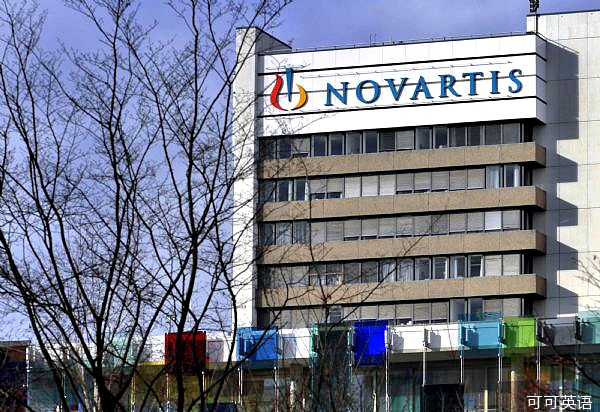
Big Pharma is still big, but its business model is dying. For years, the game in pharmaceuticals has been to research, discover and then fiercely defend billion-dollar drugs.
大型醫(yī)藥公司的規(guī)模依舊龐大,但商業(yè)模式卻開(kāi)始走下坡路。多年以來(lái),制藥領(lǐng)域通常的做法都是研究、發(fā)現(xiàn),然后拼命守護(hù)能帶來(lái)數(shù)十億美元收入的藥物。
But several mighty drug companies are losing the rights to exclusively own the formulas for best-selling drugs. Take Pfizer (PFE), which made a killing off cholesterol medication Lipitor. In 2012, Pfizer lost the exclusive rights to the drug, opening it up to competition from companies that produce cheaper, generic versions.
然而,個(gè)別大型醫(yī)藥公司卻正在失去暢銷藥配方的專有權(quán)。輝瑞制藥(Pfizer)就是一個(gè)例子。它生產(chǎn)一種降膽固醇藥物立普妥。2012年,輝瑞失去了對(duì)這種藥物的專有權(quán),生產(chǎn)廉價(jià)非專利藥的公司將和它展開(kāi)競(jìng)爭(zhēng)。
That hurt. CEO Ian Read explained in the 2012 third-quarter earnings report, "Year-to-date we have absorbed approximately $5.5 billion in LOEs." An "LOE" is a loss of exclusivity to drug formulas, including Lipitor and others in this case, and $5.5 billion is no joke.
這給公司帶來(lái)了嚴(yán)重影響。2012年第三季度收益報(bào)告中,公司CEO伊恩?里德解釋道:“年初至今,因失去專有權(quán)帶來(lái)的損失約為55億美元。”其中涉及的藥物包括立普妥和其他藥物。55億美元可不是個(gè)小數(shù)目。
So how can drug companies prevent these kinds of losses? One way, Novartis CEO Joseph Jimenez suggested to Fortune, is to re-imagine what is known as a blockbuster, or a drug that earns the company at least $1 billion per-year. "The definition of a blockbuster is changing," Jimenez said.
那么,制藥公司應(yīng)該如何避免這種情況發(fā)生呢?諾華公司CEO江慕忠向《財(cái)富》雜志(Fortune)建議的方法是,重新思考所謂的“拳頭產(chǎn)品”,或者每年至少能給公司帶來(lái)10億美元收入的藥物。江慕忠認(rèn)為:“對(duì)拳頭產(chǎn)品的定義正在發(fā)生變化。”
The old concept of a blockbuster has generally been one drug to treat one disease that affects a large population. Because blockbusters are so profitable, companies scramble to squeeze as much money out of them as possible, arguably in a way that detracts from efforts to research and develop novel treatments.
傳統(tǒng)觀念認(rèn)為,“拳頭產(chǎn)品”所指的藥物能夠治療影響大量人口的疾病。由于拳頭產(chǎn)品利潤(rùn)非常可觀,因此各大公司都想盡可能地從中榨取利潤(rùn),導(dǎo)致公司減少了在新藥研發(fā)方面的支出。
For example, large pharmaceutical companies have invested in what's known as "me-too" drugs. Companies make drugs with the same basic formulas as some of their bestsellers, tweak them slightly, and re-package them as new treatments. That strategy won't work for much longer, says Jimenez, given that the Affordable Care Act will discourage me-too drugs. Previously, to get FDA approval, companies had to prove that new drugs performed significantly better than a placebo, but they didn't have to show that the treatment performed better than drugs already on the market. Under the ACA, "new" drugs that don't perform significantly better than current options won't be eligible for reimbursement from insurance companies.
例如,大型醫(yī)藥公司通常會(huì)投資生產(chǎn)所謂的“仿制”藥物。公司生產(chǎn)這類產(chǎn)品所使用的基本配方與其拳頭產(chǎn)品完全相同,只是對(duì)其進(jìn)行稍微改動(dòng)和重新包裝,便作為一種新藥出售。江慕忠認(rèn)為,這種策略不可能長(zhǎng)久,因?yàn)椤镀絻r(jià)醫(yī)療法案》(Affordable Care Act)并不支持仿制藥物。之前,為了獲得美國(guó)食品和藥品管理局(FDA)的批準(zhǔn),公司必須證明新藥物的藥效明顯好于安慰劑,但不需要證明該藥物的治療效果好于已上市的藥物。但根據(jù)《平價(jià)醫(yī)療法案》,如果“新”藥物的藥效不能顯著好于已上市藥物,將無(wú)法獲得保險(xiǎn)公司的賠償。
This means Big Pharma has a couple of options. For one, they can fight to keep the rights to blockbusters. Pfizer has had some success with this; its hugely profitable drug Viagra was supposed to go off patent in 2012, but the company managed to extend its exclusivity rights until 2020.
這意味著大型醫(yī)藥公司只有兩條路。一是努力保住對(duì)拳頭產(chǎn)品的專有權(quán)。輝瑞制藥在這方面有過(guò)成功的經(jīng)驗(yàn);輝瑞原本應(yīng)該在2012年就會(huì)失去偉哥(Viagra)產(chǎn)品的專利保護(hù)權(quán),但公司成功把專有權(quán)延長(zhǎng)到了2020年。
But here's a crazy idea -- what about making new drugs? The catch is that competition is fierce in areas with big patient populations such as erectile dysfunction and heart disease. But Novartis has decided re-think the methodology behind drug development, Jimenez says.
但還有另外一個(gè)瘋狂的想法——研發(fā)新藥怎么樣?目前,醫(yī)藥領(lǐng)域的問(wèn)題是,在患者群體龐大的領(lǐng)域,如性功能障礙和心臟病領(lǐng)域,競(jìng)爭(zhēng)非常激烈。而江慕忠表示,諾華公司決定重新考慮藥物開(kāi)發(fā)方案。
It takes into account the fact that, in general, effective research and development doesn't come from targeting the most profitable problems. Basic research often takes many twists and turns. The discovery of Penicillin, famously, was a happy accident. Novartis (NVS) has a new strategy to try to generate that kind of serendipity. Instead of targeting a disease with a massive patient population, the company is instead targeting pathways, or the distinct biological mechanisms that cause a disease.
公司考慮到這樣一個(gè)事實(shí),即最成功的研發(fā)起初并不是直接針對(duì)盈利前景最好的醫(yī)療問(wèn)題。基礎(chǔ)研究通常會(huì)經(jīng)歷種種波折。盤尼西林便是最有名的例子,它的發(fā)現(xiàn)完全是一個(gè)意外之喜。諾華公司新策略的目的就是找到這種意外的驚喜。公司并不是把患者群體龐大的疾病作為目標(biāo),而是將藥品開(kāi)發(fā)途徑或?qū)е录膊〉牟煌餀C(jī)制作為重點(diǎn)。
The company has seen some success with this method. It developed its drug Afinitor, for example, for with the idea to target a cluster of diseases. Afinitor was first approved to treat kidney cancer. But research demonstrated that it also works in patients with some lung and breast cancers. Sales of Afinitor for breast cancer do not add up to $1 billion, neither do sales of Afinitor as a kidney cancer or lung cancer treatment. But looking at the sales numbers combined, it makes a blockbuster.
這種方法已經(jīng)取得了一定的成功。例如,公司針對(duì)一系列疾病研發(fā)的藥物依維莫司(Afinitor)最初被批準(zhǔn)用于腎癌治療。但研究證明,這種藥物對(duì)于治療肺癌與乳腺癌同樣有效。將依維莫司作為治療乳腺癌的藥物,它的銷量達(dá)不到10億美元,而作為治療腎癌或肺癌的藥物,它的銷量同樣達(dá)不到10億美元。但如果將三者綜合起來(lái),依維莫司便可以成為諾華公司新的拳頭產(chǎn)品。
There are pros and cons to this method. According to a February analyst report from Morningstar, Novartis is well positioned for good long-term growth. But investors need to understand that this kind of growth can take time. The old blockbuster-finding strategy hasn't been sustainable, but it's been profitable immediately. Novartis is taking a different route through drugs that treat smaller patient populations.
當(dāng)然這種方法有利有弊。晨星公司(Morningstar)二月份的分析師報(bào)告顯示,諾華公司具備長(zhǎng)期良性發(fā)展的條件。但投資者必須理解,這種增長(zhǎng)需要時(shí)間。傳統(tǒng)的尋找拳頭產(chǎn)品的策略雖然不能持久,但卻能迅速產(chǎn)生利潤(rùn)。而諾華公司致力于針對(duì)患者人群較小的藥物,走了一條截然不同的道路。
Investors aren't always willing to be patient. For example, in 2009, Novartis received approval for Ilaris, a drug that treats CAPS, a class of rare, potentially fatal autoinflammatory diseases that can cause fevers and chills, bone deformities, and loss of vision. "Many of our people said, 'Why are you designing a drug for only 6,000 people in the world; CAPS is so rare?'" No one else was making drugs to treat the disease.
投資者往往都缺乏耐心。例如,2009年,諾華研發(fā)的藥物Ilaris獲批用于冷吡啉相關(guān)周期性綜合癥(CAPS)的治療。CAPS是一種罕見(jiàn)的、可能致命的自體發(fā)炎性疾病,可能導(dǎo)致發(fā)熱、發(fā)冷、骨畸形和失明。“公司許多人都說(shuō):‘你們?yōu)槭裁瓷a(chǎn)這樣一款藥物?全球只有6,000人患有這種疾病;CAPS太罕見(jiàn)了。’”沒(méi)有其他任何一家公司在生產(chǎn)治療這種疾病的藥物。
But the idea is that cracking the code to treat CAPS will lead the way to treatment of other diseases caused by the same mechanism.
而諾華公司的觀點(diǎn)是,在CAPS治療中的突破可以為由相同機(jī)制引發(fā)的其他疾病的治療提供思路。
Using this strategy, Novartis will not bet the farm on finding the next massive breakthrough, such as an Alzheimer's drug, which is a tack its competitors have taken.
通過(guò)這種策略,諾華公司不再將賭注壓在尋找下一個(gè)巨大的突破上,例如其他競(jìng)爭(zhēng)對(duì)手正在關(guān)注的阿爾茨海默病(俗稱老年癡呆癥)藥物。
But there are clear pros to the company's plan. For one, Novartis will make treatments for rare diseases that could ultimately blossom into blockbusters by virtue of their application to multiple maladies. Even the drugs that don't materialize into great sales numbers will get the company into a new market.
公司的計(jì)劃有非常明顯的優(yōu)勢(shì)。比如,諾華公司生產(chǎn)治療罕見(jiàn)疾病的藥物,通過(guò)藥物在不同疾病中的療效,最終可能成為公司的拳頭產(chǎn)品。即使藥物無(wú)法取得龐大的銷量,但仍可以為公司打開(kāi)新的市場(chǎng)。
And to chuck the business angle for a moment, the big-picture pro of this strategy is that it means Novartis will be making medicine for people who need it, despite the industry straying from that somewhat as an effective business strategy.
暫且拋開(kāi)商業(yè)角度不談,這種策略的一個(gè)巨大優(yōu)勢(shì)在于,它意味著諾華公司將為有需要的患者生產(chǎn)藥物,這才是醫(yī)藥公司行之有效的商業(yè)策略,盡管整個(gè)醫(yī)藥行業(yè)正在偏離這一軌道。
Making drugs, after all, is what drug companies are supposed to do.
畢竟,生產(chǎn)藥品才是制藥公司的本分。


